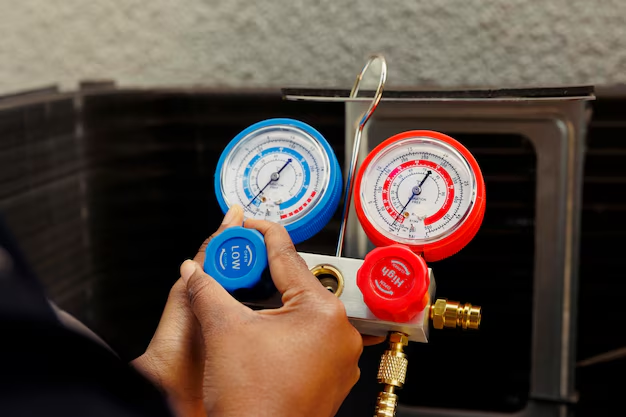Should Your Refrigerator Compressor Be Hot to the Touch?
When it comes to home appliances, our refrigerators often operate quietly in the background, keeping our food fresh and lastingly delicious. But what happens when you touch the back of your refrigerator and notice the compressor is hot? Is this normal, or should you be concerned? This guide explores the nuances of refrigerator compressors, the reasons behind their heat, and when it may be time to take action.
🤔 Understanding Your Refrigerator Compressor
What Is a Compressor?
In simple terms, a compressor is the heart of a refrigerator. It is responsible for circulating refrigerant throughout the system, enabling the appliance to maintain its cool temperature. It achieves this by compressing the refrigerant, raising its pressure and temperature before it moves through the condenser and finally transforms into a cooling liquid.
How Does a Compressor Work?
The working cycle of a compressor involves taking in low-pressure gas and compressing it into a high-pressure state. Here’s a basic breakdown:
- Compression: The compressor compresses the refrigerant gas, which raises its temperature.
- Condensation: The high-pressure gas then moves to the condenser coils, where it loses heat and turns into a liquid.
- Expansion and Evaporation: This liquid moves to the evaporator coils inside the fridge, where it absorbs heat and cools the fridge’s interior.
- Recirculation: The refrigerant returns to the compressor to repeat the cycle.
Understanding this cycle is crucial to recognizing why the compressor might feel hot.
🌡️ When Is Heat Normal?
Heat generation is a normal aspect of a compressor's operation, given its role in pressurizing refrigerant gas. Here’s what you should know about a warm compressor:
- Normal Operating Temperature: Compressors in good condition can feel warm or slightly hot to the touch. This can be attributed to the heat generated during the pressurization process.
- Ambient Conditions: Room temperature and ventilation around the appliance significantly affect the compressor’s heat. A compressor might be hotter during summer months or in a poorly ventilated space.
Make sure your refrigerator has adequate ventilation to help manage compressor temperatures.
Symptoms of Normal Heat
- Consistent warmth that does not feel excessively hot or burning.
- No noticeable burning smell or unusual noises.
- Regular cooling performance from the refrigerator.
🚨 When to Be Concerned
While some heat is normal, certain conditions might suggest a need for inspection or repair.
Potential Warning Signs
Overheating: If the compressor is too hot to touch and you notice a burning smell, this could mean it's overheating. Overheating not only threatens the appliance’s function but can also be a fire hazard.
Frequent Cycling On and Off: This might indicate the compressor is overworking itself, potentially due to issues like a faulty thermostat or refrigerant leak.
Unusual Noises: Grinding, clanking, or other abnormal sounds may indicate mechanical problems within the compressor.
Common Causes of Overheating
- Dirty Condenser Coils: Dust and debris can insulate the coils, preventing heat dissipation.
- Faulty Fan: The fan helps cool the compressor. If it’s broken, the compressor might overheat.
- Refrigerant Issues: Inefficient refrigerant levels or blockages can cause the compressor to work harder than necessary.
🛠️ Steps to Address a Hot Compressor
Check and Clean the Coils: Regularly clean the condenser coils to ensure efficient heat removal.
Ensure Proper Ventilation: Arrange your fridge with enough space from walls or other appliances to allow airflow.
Inspect the Fan: Ensure the fan is operational. An ineffective fan can cause overheating.
Professional Evaluation: When in doubt, a professional appliance technician can diagnose and resolve issues beyond routine maintenance.
💡 Preventative Measures for Optimal Compressor Performance
To extend the lifespan and efficiency of your refrigerator compressor, consider these practices:
Regular Maintenance: Schedule routine check-ups for your refrigerator to keep all parts in working order.
Appropriate Refrigerator Load: Avoid overloading your refrigerator, as an overcrowded space can lead to inefficiencies that overwork the compressor.
Appropriate Temperature Settings: Ensure your refrigerator is set to the appropriate cooling levels, normally between 37°F (3°C) for the fridge and 0°F (-18°C) for the freezer.
Door Seal Integrity: Check that door seals are tight to prevent cold air escape, which can reduce compressor workload.
🔍 Ensuring Long-term Refrigerator Health
Here's a practical summary to help keep your refrigerator compressor running smoothly:
Compressor Health Checklist
- 🌬️ Ventilation: Ensure at least 2-4 inches of space around the fridge for proper airflow.
- 🧹 Clean Coils: Dust your coils every six months.
- 🛠️ Regular Checks: Listen for abnormal sounds or smells from the compressor.
- 📏 Maintain Space: Avoid pushing your fridge against the wall, which restricts airflow.
- 🔌 Professional Help: Seek expert advice if something unusual occurs.
Keeping these aspects in check can maintain efficiency and avoid costly repairs.
Returning to the Core Question
So, should a refrigerator compressor be hot to the touch? In many scenarios, feeling warmth from the compressor is normal. However, it's crucial to recognize when the heat might indicate a problem that needs addressing. With routine care, you can support your appliance’s optimal performance, potentially preventing small issues from becoming significant problems.
By understanding the cold facts about compressors and implementing regular maintenance, your refrigerator can continue its role as the cornerstone of your kitchen.

